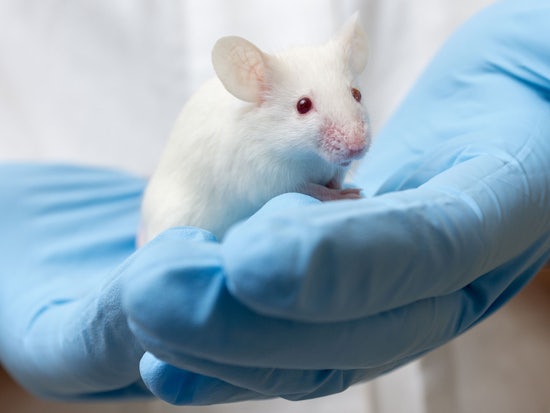Anti-depressant and cancer drugs could help halt degenerative brain diseases
Researchers have discovered a drug used to treat depression and another currently being trialled as an anti-cancer drug have prevented brain cell damage and even restored memory in mice.

A new drug currently tested on mice could prevent brain cell damage and even restore memory (Source: Shutterstock)
Misfolded proteins build up in the brain in several neurodegenerative diseases and are a major factor in diseases such as Alzheimer’s and Parkinson’s as well as prion diseases such as Jakob Disease.
Working on the principal that drug repurposing is less time-consuming and costly than drug discovery, the UK-based Medical Research Council (MRC) team tested over one thousand compounds first in worms, and then in mice. It identified two drugs that restored protein production rates in mice – trazodone hydrochloride, a licensed antidepressant, and dibenzoylmethane (DBM), a compound being trialled as an anti-cancer drug.
Both drugs prevented the emergence of signs of brain cell damage in most of the prion-diseased mice and restored memory in the frontotemporal dementia (FTD) mice. In both mouse models, the drugs reduced brain shrinkage which is a feature of neurodegenerative disease.
Project leader Professor Giovanna Mallucci, highlights we already know trazodone is safe to use in humans.
“A clinical trial is now possible to test whether the protective effects of the drug we see on brain cells in mice with neurodegeneration also applies to people in the early stages of Alzheimer’s disease and other dementias,” she says. “We could know in 2-3 years whether this approach can slow down disease progression, which would be a very exciting first step in treating these disorders.”
She points out Trazodone has been used to treat the symptoms of patients in later stages of dementia. “So we know it is safe for this group,” she says. “We now need to find out whether giving the drug to patients at an early stage could help arrest or slow down the disease through its effects on this pathway”
Dr Rob Buckle, Chief Science Officer at the MRC, the study builds on previous work by this team and is a great example of how really innovative discovery science can quite quickly translate into the possibility of real drugs to treat disease.
“We currently have no way of treating these diseases so the prospect of finding drugs that can slow or stop them from progressing is extremely exciting – even more so when this is based on drugs that have already undergone expensive and time consuming testing in unrelated studies to establish that they are likely to be safe to use in humans,” he says.
Results appear in the journal Brain.











![The new Aged Care Act exposure draft is slated for release in December of 2023, but advocates hope to see it rolled out on January 1, 2024. [Source: Shutterstock]](https://agedcareguide-assets.imgix.net/news/articles/wp/agedcareact__0811.jpg?fm=pjpg&w=520&format=auto&q=65)












Comments